Rolf Uys is a familiar face of the food safety industry in South Africa. Food Focus caught up with Rolf preparing for one of his legendary inspections.
FF: When did you first become interested in the food industry?
After school I started studying BSc. I soon realized the pure sciences (physics, chemistry, zoology, etc.) were not for me. So I veered towards the more applied sciences that Food Science offered.
FF: What did you study to give you the skills you know use?
I studied BSc. Food Science and Hons at UOFS and then did a Masters at Stellenbosch. I did lead auditors courses in all the major audit schemes. But the skills have come from international exposure and lots of audit hours.
FF: What has your food industry journey looked like?
I started to work at the Fishing Industry Research institute that later became the CSIR Foodtek. This was around the time that HACCP became compulsory for the food export industry. The first task on my plate was “Go help the fishing industry understand HACCP”. From there I got into training and then auditing. I then landed a job as an auditor at the USA based company AIB international. I spent close to 15 years training and auditing all over the world for them.
FF: Who has inspired you in your food safety journey? Any mentors you look up to?
Anthony Raschke. We come from the same town (Kempton Park) We worked together at CSIR and did training road trips together. He’s an amazing presenter and auditor. Then there is Bill Pursley and Cliff Pappas from AIB. They are international food safety legends of note. I presented training with Bill and audited with Cliff. I’m also inspired by food facility managers who are true leaders.
FF: When did you become interested in auditing?
When I learnt that it’s a way to see the world. Probably early 2000’s.
FF: There are many audits taking place in the South African food industry these days. What do you see as the main difference between auditing and inspection?
Auditing is defined as measuring against a standard and involves sifting through a great deal of paperwork. This is off course important, but the principle of inspection is often missed because one gets bogged down by getting through a checklist. Inspection is unscripted. You inspect a factory and simply challenge things. You disassemble equipment to look for the pests or the biofilm, you question personnel’s understanding of concepts, you climb up on ladders, you look under equipment. You get your hands dirty. The objective is challenging whether food safety is a paper exercise or a “living” system.
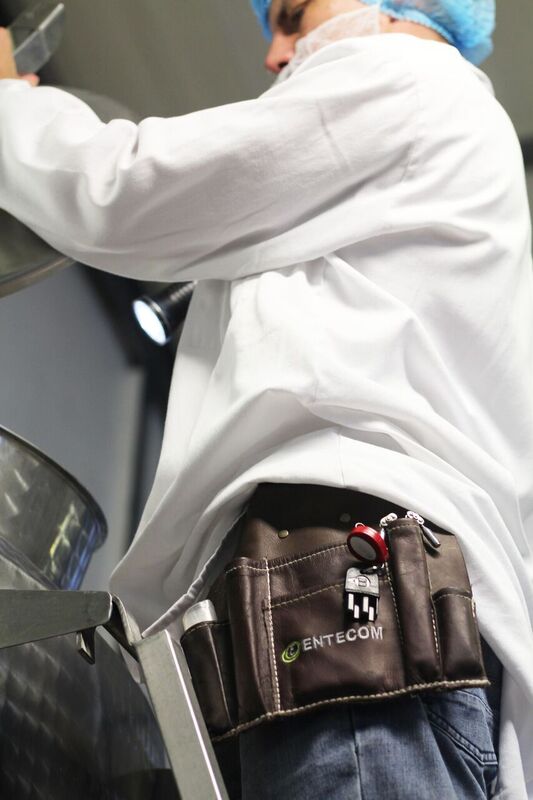
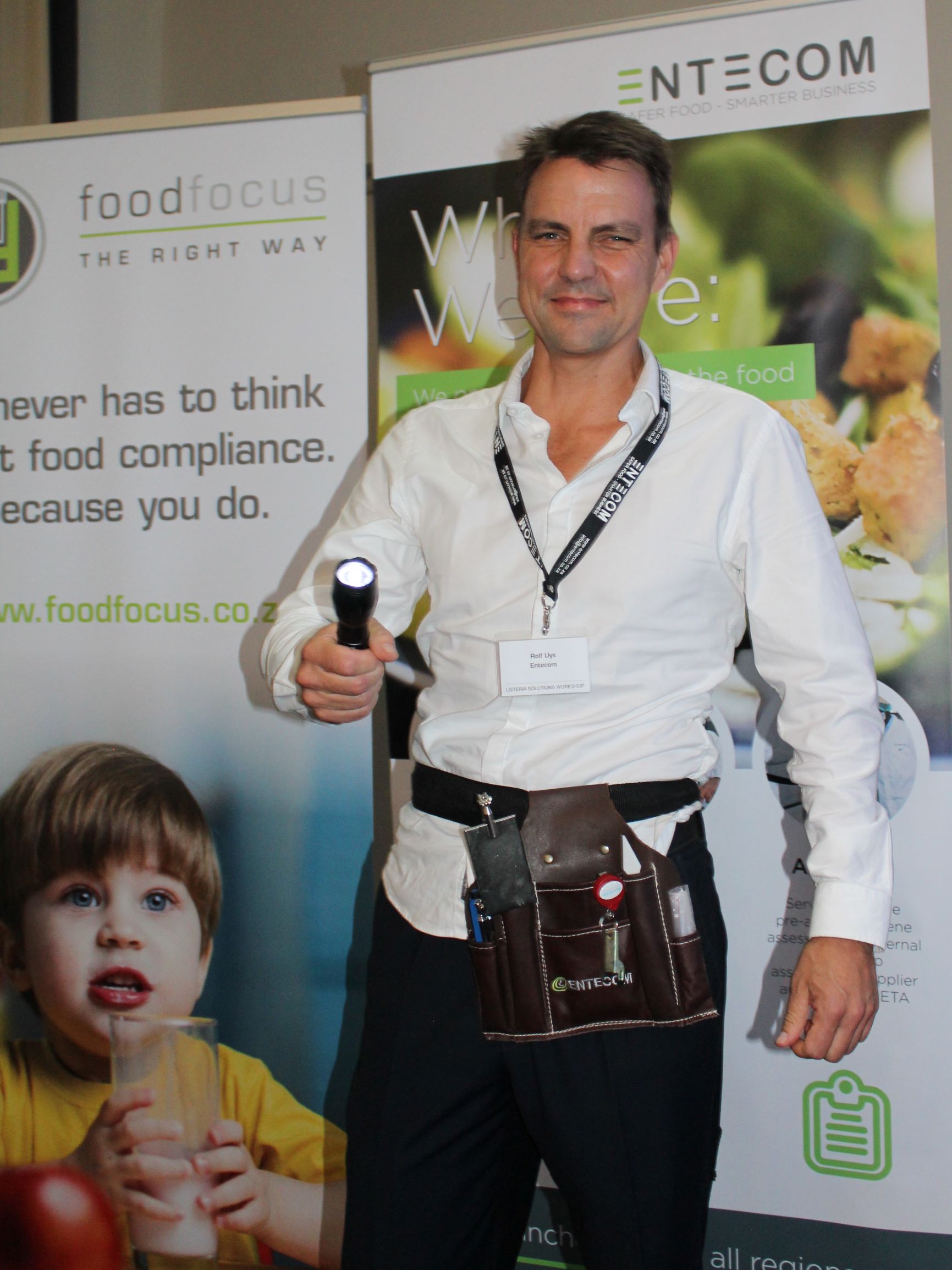
FF: You often talk about finding the panda – changing the way you look at your factory when you do an inspection - Why do you think many factories miss their food safety problems and when you arrive, you identify so many issues?
To be honest, the audit quality in SA is not good. There is no career path for auditors and many simply don’t understand the fields they are auditing in. A further problem is that one only becomes a good auditor once you have seen good factories. There are unfortunately relatively few good factories in SA. The reality is most are poor to mediocre.
The average auditor believes average is good and hands out certification too easily. I was in that boat too until I audited internationally and experienced some of the best of the best factories. This all leads to a false sense of security. Many factories get certified who do not deserve it.
So when I come and do a proper inspection I’m actually just seeing things that other auditors (and internal personnel) should be seeing. The things I pick up on inspections are not rocket science. Its basics such as foreign material contamination, equipment not cleaned, void spaces, mislabeling, rats, birds, cockroaches etc. Stuff everyone takes for granted and has not really ever been challenged properly. I just know where to look from learning through experience.
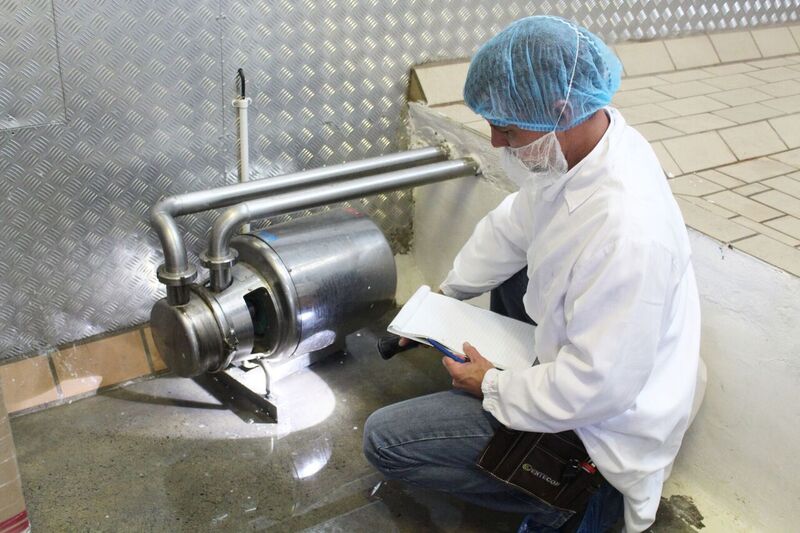
FF: You are now a franchise owner with Entecom – what made you make this change and what do you enjoy about this new role?
I did my school fees as auditor, but I had enough of the routine, the travelling (and the reports). I decided to focus more on giving back and do training. Entecom gave me the perfect platform to do this as my own business owner.
FF: What 5 tips would you give a company to assist them in performing better inspections?
- Use the right tools. I use a tool belt with a good torch, a stainless steel telescopic mirror, panel key, bait station key and extendable magnet.
- Take nothing for granted. Challenge the cleaning, challenge the cleaning concentration , challenge the pest trending challenge the allergen colour coding or the understanding of traceability, and so forth.
- Plan enough time. One cannot do a proper inspection of a 2000sq m plant in 30 mins. You’ll need at least a full day
- Involve senior managers. They should ideally participate in inspections so they can see the issues. Do not palm off inspections to the junior lab QC.
- Follow up. No use one does a good inspection, but nothing happens afterwards. Findings should be documented followed up, escalated and closed out.
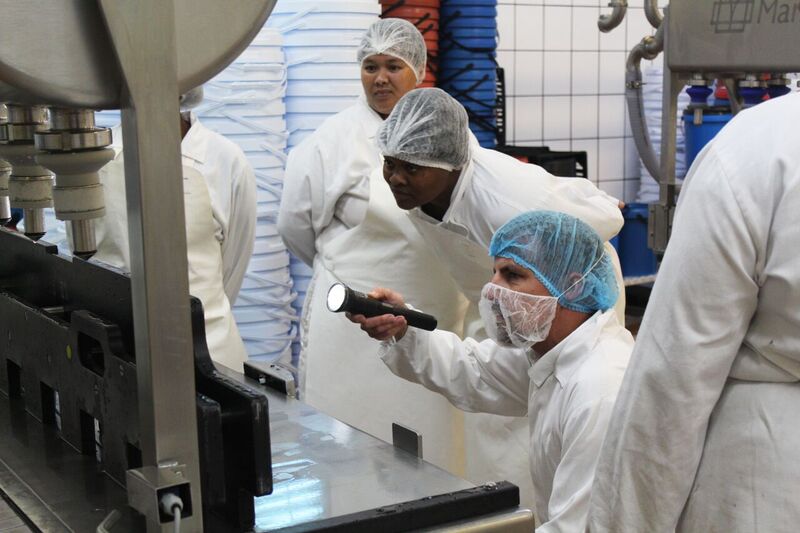
FF: Can you assist a company by providing “on the job” training on how to perform inspections, in other words, walk us through the process?
For sure, this is my most popular training course. I break the course in three . One third theory, one third interactive work (case studies, exercises, photos, videos) and one third practical. We walk the factory floor. I point findings and encourage delegates to do the same. At the end I have trained everyone’s eyes so they can “see the panda” - to see food safety in a different light.
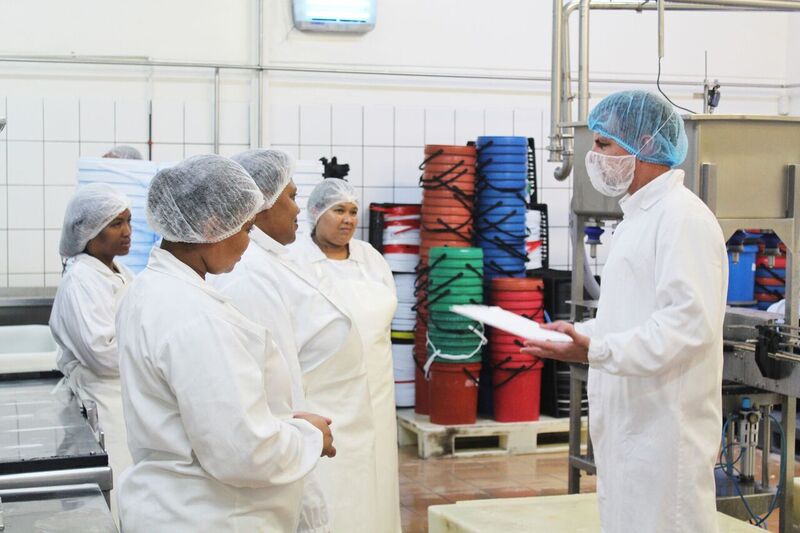
FF: So tell us something about Rolf Uys that many people don’t know?
I love the ocean. When I’m not immersed in a factory inspection, I’ll be in the sea. When the waves are up, I surf. When the waves are flat I stand up paddleboard. When the wind blows I kitesurf. I was even in the Guinness book of records - was part of the record for most surfers on a wave.
My two year old daughter’s favourite toy is a pet listeria. It’s one of those neon yellow rubbery things you get from Crazy store. Often when I do training, I try and make it more fun by planting stuff such as toy rats, cockroaches and toy listeria’s. She decided that she’d take over the toy listeria.
FF: This Listeriosis has rocked the whole food industry. What would you say to the CEO’s of food companies right now in the aftermath of this crisis?
When a plane crashes and 100 people lose their lives, the airline company executives and the airline investigation authorities spend endless hours and leave no stone unturned until they get to the route cause. They physically put every piece of the broken plane together and reconstruct what exactly happened. This information is then shared with all other airlines and used to make flights safer, the world over.
My advice to the CEO’s of the companies involved with the Listeria outbreak will be to take this approach. Find out exactly what happened and share it with all of us, so we can avoid such a terrible disaster next time.
My advice for other CEO’s managing high risk food facilities – Do not be complacent. Don’t take food safety for granted and don’t have a false sense of security. Don’t just “do the right thing” by getting a certificate because one has to. Rather “do things right” by understanding the risks of food safety and managing it properly.








